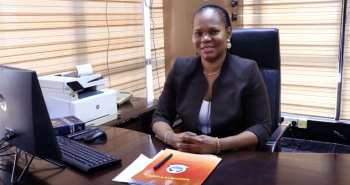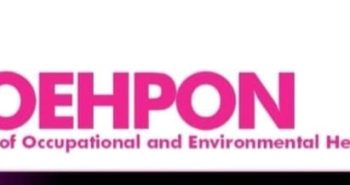Subscribe to the our newsletter to receive latest news straight to your inbox.
WASSCE: WAEC battles rogue website operators, needs government support not query
By Clifford Ejenavi The ongoing conduct of the West African Senior School Certificate Examination (WASSCE) for School Candidate, 2025 by the West African Examinations Council (WAEC) has been smooth until recent development due to logistical challenges, security concerns and socio-cultural factors.These challenges arose after the English Language paper scheduled for Wednesday, May 28, 2025 leaked…

By Clifford Ejenavi
The ongoing conduct of the West African Senior School Certificate Examination (WASSCE) for School Candidate, 2025 by the West African Examinations Council (WAEC) has been smooth until recent development due to logistical challenges, security concerns and socio-cultural factors.These challenges arose after the English Language paper scheduled for Wednesday, May 28, 2025 leaked before the examination took place. In swift response to the leak paper, WAEC decided to reprint the paper to prevent malpractice and national outcry. However, this decision led to delay of the question papers’ arrival at their designated centres, forcing candidates to take the examination during odd hours.This is the time for the government, particularly our Lawmakers to show solidarity and support the Council and not the time to issue query because there are still papers to be written. The Council needs to focus on the completion of this diet. Lawmakers should issue stiffer penalty including jail term to rogue website operators and generally examination malpractice.WAEC has repeatedly stated that it faces major challenges, particularly the unchecked operations of rogue website operators that has been a can of worms on the Council’s operation in Nigeria. These individuals see WAEC examination periods as a cash cow, and this has become the Council’s nemesis. The Council recognised that the world is fast paced in technology and an era where digital platforms serve as powerful tools for education, communication, and innovation.The activities of these rogue website operators have become a troubling trend that is threatening and shaking the very foundation of academic integrity. These dare-devil individuals peddle false information, circulate counterfeit examination materials, and orchestrate cyber frauds that undermine the credibility of public examinations and has threatened to dent the reputation of the WAEC.The West African Examinations Council has worked tirelessly over the years to uphold the sanctity of assessments, ensuring that every examination conducted meets the highest standards of fairness, security, and merit. However, the efforts are now being increasingly compromised by these unscrupulous individuals who run illegal websites claiming to offer ‘leaked’ examination questions, answers, or shortcuts to success. These platforms prey on the vulnerability of students, exploit the anxiety of parents, and sow seeds of doubt in the minds of the public regarding the authenticity of examination results.The damage being done by these rogue website operators is enormous; they not only peddle misinformation, but also pose a real threat to national development by undermining the credibility of examination bodies, making it harder to ensure merit-based evaluation. They deceive and psychologically manipulating students, encouraging dependency on unethical means rather than genuine study. They erode public confidence in educational institutions and their processes, thereby triggering widespread of misinformation, especially during sensitive examination periods, such as WASSCE. This is the time for the government to step in with measures to assist WAEC nip these examination manipulators to the bud not dragging the management or distract them from focusing on conducting the examination. The Council has made significant efforts to resolve this issue, but unfortunately, it seems the measures implemented were not effective as expected.While WAEC should take full responsibility of the recent setback, it should be committed to safeguard the integrity of future examinations and prevent incidents of this nature from reoccurrence.For 73 years of its existence, the West African Examinations Council has successfully administered credible examinations to over Two Hundred Million Million (200,000,000) candidates across English-speaking West African countries, and awarded certificates that hold international recognition, thereby maintaining its position as Africa’s foremost examination body. The Council has achieved these feats while navigating the complex dynamics of a post-colonial landscape and faced head-on numerous challenges, particularly during examination periods. Through it all, the Council should remain resilient, upholding its core values of integrity, innovation, and professionalism to confront and overcome these obstacles.While the Council has invested significantly in enhancing cybersecurity systems, collaborating with law enforcement agencies, and sensitising the public through media campaigns, the current legal framework has not sufficiently deterred these digital criminals. Therefore, the Federal Government and relevant legislative bodies should enact stricter cybercrime laws specifically targeting those who disseminate false examination materials or impersonate official exam websites; empower and fund cybercrime units within law enforcement agencies to monitor, trace, and dismantle rogue digital networks; implement swift prosecution and enforce severe penalties, including imprisonment and heavy fines, for individuals or groups found guilty of sabotaging public examinations; Collaborate with technology companies and internet service providers to shut down illegal websites and trace operators using digital forensics.The integrity of public examinations is not just an education issue it is a matter of national interest. The future of millions of young people depends on a fair, secure, and trustworthy system that rewards hard work and diligence. Rogue website operators who exploit this system are not only committing cybercrime, they are sabotaging national development.Similarly, the issue of malpractice malpractice in the education sector is crucial for the progress and prosperity of Nigeria. It requires a collective effort from all stakeholders to uphold the values of honesty, integrity, and excellence by building trust and credibility within our society. There is the need for transparency and accountability to hold individuals and groups accountable for their actions to promote good governance and decision-making process.The West African Examinations Council according to its mission, remains resolute to conduct credible, transparent, and fair examinations but cannot win the battles alone. It is time for a united front between examination bodies, parents, schools, law enforcement agencies and the government to shield the nation’s educational system from digital decay.
Recommended Articles
-
NELFUND receives additional N50bn from EFCC to boost student loan scheme
1 year ago443 views -
NELFUND warns institutions against withholding loan disbursement information from students
6 months ago327 views -
UNILAG Don calls for regulatory reforms of ethical insurance, Takaful integration
4 months ago211 views -
Mrs. Wickliffe assumes office as new UNILAG Registrar
8 months ago639 views -
SOEHPON: Creating awareness for occupational and environmental health practices in Nigeria
2 months ago246 views -
How Yul-Edochie can regain his groove after marriage crash with Judy Austin
4 weeks ago278 views









